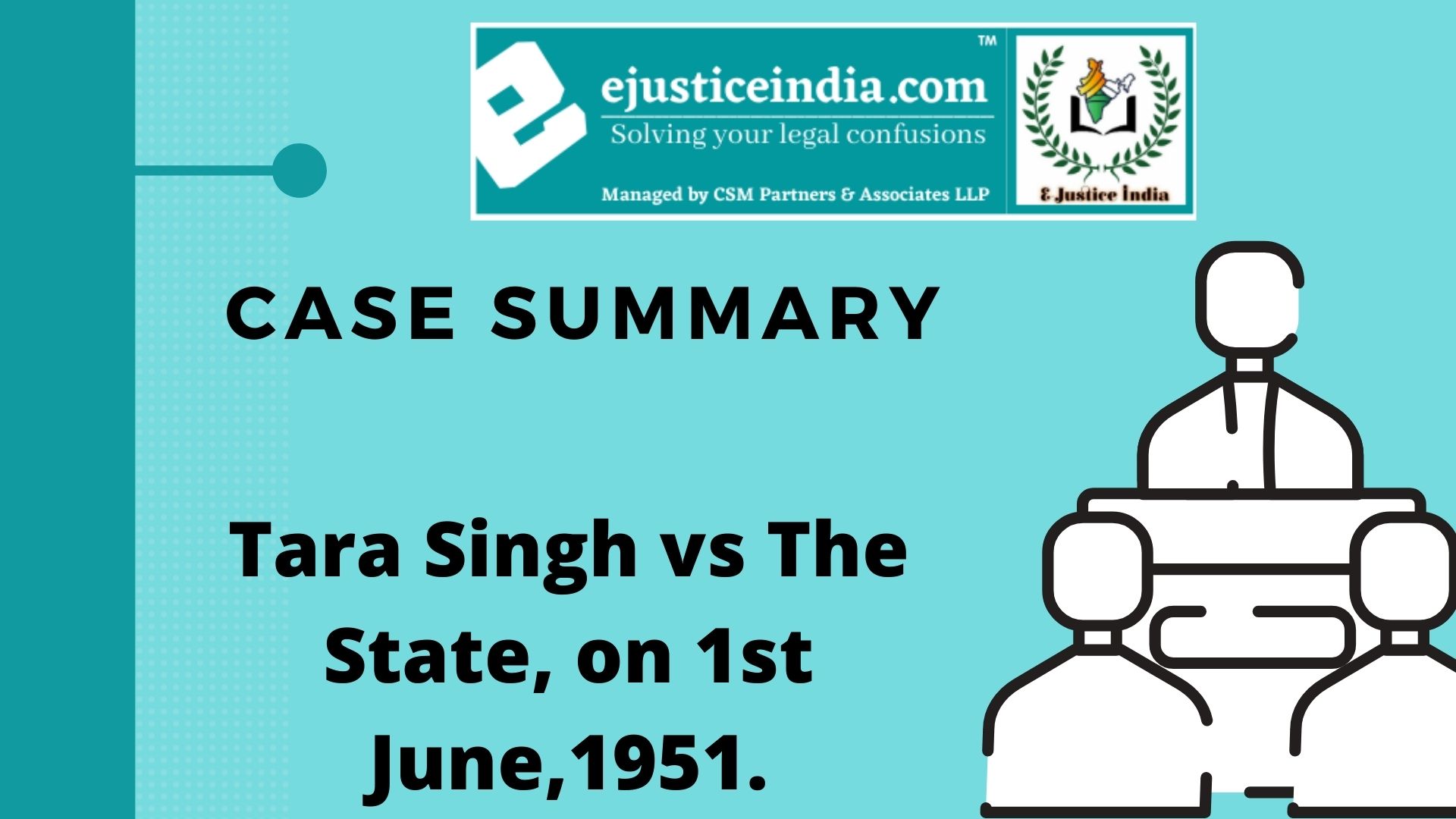BISMILLAH KHAN V. UNION OF INDIA & ORS.: CASE SUMMARY
Author: Megha Garg
Case Name: Bismillah Khan Vs. Union of India & Ors.
Equivalent Citation:
W.P. 928 (W) of 2020
Bench:
The Hon’ble Justice Sabyasachi Bhattacharya
Introduction
This particular talks about the citizenship of India. Section 5(1)(c) states that A person who is married to an Indian citizen and is ordinarily resident in India for seven years before applying for enrolment.
Facts of the Case
The petitioner (Bismillah Khan) had been a resident of Pakhtoon. Pakhtoon was partially split and overtaken by Afghanistan and partially by Pakistan in 1973. Because of this, the petitioner had to move to India at the age of 5.They did not have a passport upon their arrival, because of constant confusion and disruptions. After several years of living in India and contributing to the Indian economy, due to the absence of a valid passport, he is unable to apply for Indian Citizenship. The online application system does not allow for the completion of the application, as the international passport presence provision is mandatory.
Issues of the Case
Whether a valid international passport is a compulsory precondition for granting Indian citizenship?
Judgement
- From the provisions of Section 5(1)(c) of the 1955 Act, read in accordance with Rule 5(1) of the 2009 Rules, it appears that the petitioner’s application is not entertainable unless it is necessary in Form III in accordance with Section 5(1)(c) of the Act. A perusal of Form III reveals that paragraph 9 of the same specifies that the applicant’s passport information be filled in, and that the documents to be attached to the application include a valid international passport.
- Although it is not specified in such a form that all relevant information, including the petitioner’s passport details, and a copy of a current foreign passport are required, even if the petitioner is not in a position to produce such a passport for legitimate reasons.
- It cannot be held that the provision of the creation of a passport and its information is compulsory in nature and that such a requirement must be relaxed in the event that the applicant is able to satisfy the competent authorities on the grounds that such a passport is not available as it would violate the spirit of Article 14 of the Indian Constitution.
- Reading in this light, the petitioner should have the opportunity to contact the relevant authorities as provided for in Rules 11 and 12 of the 2009 Citizenship Rules and, if they are satisfied, why the applicant is not in a position to issue his passport, Such application may be forwarded to the Central Government, which is then bound to consider such a request, despite the absence of a petitioner’s passport, if it is satisfied that the ground of satisfaction recorded by the State Authorities is to the satisfaction of the Central Government.
- In this regard, despite making applications online, a provision must be made for persons who do not have all the details of their passport, which is read as optional, to file manually applications which are to be treated as valid applications under Rule 5 of the 2009 Citizenship Rules, alternatively to modify the necessary software so that online applications may be submitted with or without passports, in the latter case providing detailed reasons for the failure to furnish the passports. However, the sanctioning of such forms will be conditional upon the satisfaction of the competent authorities, the reasons why the applicant could not produce his / her passport.


